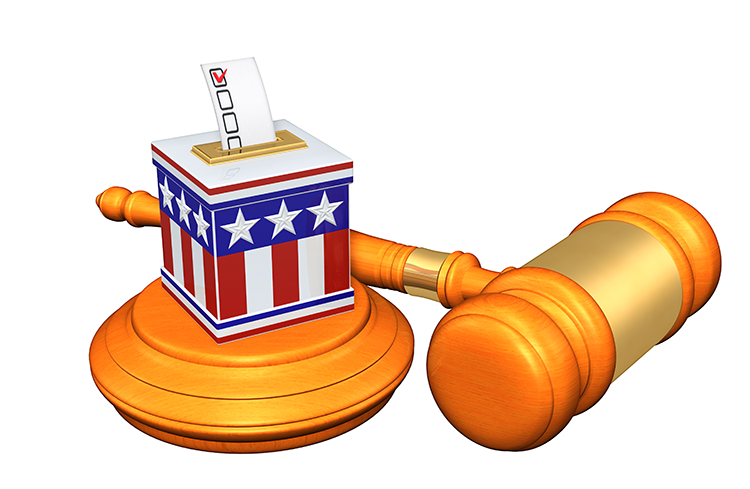Emergency SCOTUS filing follows ballot ruling that could affect Dr. Oz’s US Senate race

Image from Shutterstock.
Updated: A judicial candidate in Pennsylvania is asking the U.S. Supreme Court to issue an emergency stay that will prevent the counting of mail-in ballots in undated envelopes in a 2021 Lehigh County, Pennsylvania, election.
Lawyers for David Ritter, a Republican candidate in the 2021 election for the Lehigh County Court of Common Pleas, is asking the Supreme Court to stay a ruling by the 3rd U.S. Circuit Court of Appeals at Philadelphia while it considers whether to grant cert in his case.
On Tuesday, Justice Samuel Alito granted an administrative stay pausing the 3rd Circuit ruling pending a further order by Alito or the full court, report Law.com and the Associated Press.
Law.com has earlier coverage of the emergency application, while Law360 covered the 3rd Circuit’s May 27 decision.
The 3rd Circuit order requiring the counting of the ballots has been cited in the Republican primary election for the U.S. Senate in Pennsylvania. The race pits former hedge fund manager David McCormick against TV personality Dr. Mehmet Oz. McCormick is seeking the counting of mail-in ballots without a filled-in date on the envelope, Law360 reported in a prior story.
Ritter had a 74-vote lead against his Democratic challenger without the counting of the mailed ballots, the Morning Call previously reported.
The 3rd Circuit ruled that voters’ failure to fill out the date space on ballot envelopes was immaterial. The court cited two reasons why: The voters’ qualifications were checked before they received the ballots, and election officials had dated the returned ballots to show that they were received in time. The May 27 opinion explaining its earlier order to count the ballots is here.
The 3rd Circuit also noted that ballots with a future date or the date in the wrong place were counted, while ballots without a filled-in date were not.
“We are at a loss to understand how the date on the outside envelope could be material when incorrect dates—including future dates—are allowable,” the 3rd Circuit said.
The appeals court cited the materiality provision of the Civil Rights Act, which prohibits any “person acting under color of [state] law” from denying anyone the right to vote in any election because of an error or an omission that is not material in determining whether the person is qualified to vote.
Ritter’s emergency application to the Supreme Court said the 3rd Circuit “adopts a novel interpretation of an obscure federal statute that would let federal courts set aside any state election law that they deem ‘immaterial.’”
The American Civil Liberties Union had represented five county voters who sought the counting of the ballots, according to a May 20 press release.
Updated June 1 at 8:20 a.m. to report on U.S. Supreme Court Justice Samuel Alito’s order.



